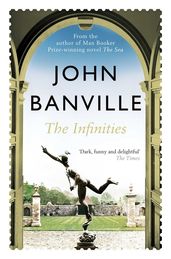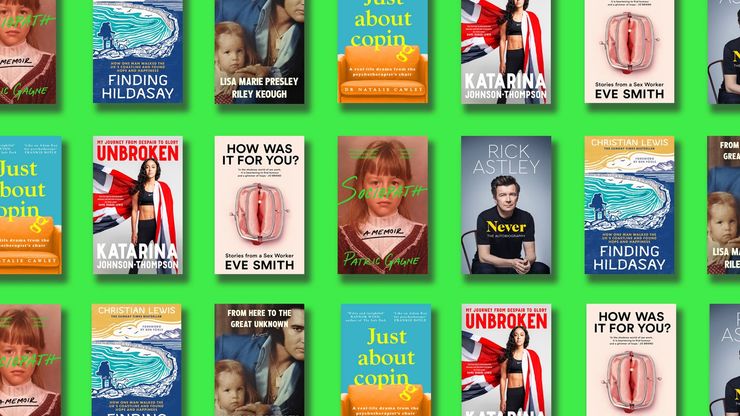An interview with John Banville
The origins of a novel are always mysterious, the components - plot, characters, setting - drifting up from the unconscious like pale fish surfacing in a deep pool.

An interview with John Banville about his novel The Infinities.
The Infinities features two distinct sets of characters – Earth-bound mortals and Parnassian Gods: what made you want to write about the influence of each group upon the other?
The book has a very specific source in Heinrich von Kleist’s dramatic masterpiece Amphitryon. Kleist is one of the great figures of European literature, though alas he is little known in the English-speaking world. I would put him on the same level with, or, in some instances, even higher than, Goethe and Schiller. His ambition was to meld Greek drama with Shakespearian burlesque, and certainly in Amphitryon he succeeded. Originally I intended to base the novel quite closely on Kleist’s play, but fiction always has to find its own way, and in the end the echoes are quite distant, except that in the play Jupiter and Mercury—the Latin forms of Zeus and Hermes—come to earth and cause romantic havoc, as to a certain extent they do in The Infinities. But the world in which The Infinities is set is our world, not Mount Olympus.
Could you just take us briefly through your novel-writing process?
The process itself is certainly not brief! I put down the first notes for The Infinities in July 2004, and finished writing the book in the spring of this year. The origins of a novel are always mysterious, the components - plot, characters, setting - drifting up from the unconscious like pale fish surfacing in a deep pool. The older I get the more it seems to me that making fiction is very like dreaming, except that in fiction one has a certain amount of control over the material. I say ‘a certain amount’ because a novelist must always be prepared to let the unexpected happen.
This is your first novel under your own name since The Sea won the Man Booker Prize, did you feel any more or less pressure, whilst writing The Infinities, as a result of that?
Certainly I felt no pressure either from myself or my publishers to produce a new book. The prize is a wonderful thing to have—and certainly a wonderful thing to have had, since one can stop fretting over it each autumn—but I would be a poor artist indeed if I let the winning of it affect anything other than my bank balance. I am aware, though, that a prize-winning book is not entirely the product of one person, but of a team, including editors, designers, publicists...
The tone of The Infinities is often humorous, at times even bawdy and licentious; to some of your fans this may seem like a departure, how would you feel about that reaction?
Humorous, yes, but bawdy and licentious? Goodness me, I didn’t intend to depart down that murky byway. The gods are, of course, lustful beings, and their doings often tend towards bawdiness, but what I want always to convey is some sense of the other-worldliness of this world, the extraordinariness of the ordinary, and in this case the way to do that was through the voice of a god. I hope my faithful readers will not see The Infinities as a radical departure from the endeavour I’ve been engaged on since I began to write, which is to provide a little light, a little illumination, in a dark place.
I think that the novel has a real sense of Hazlittian ‘Gusto’ – no doubt as a result of the energy of the author – it feels as though you really enjoyed writing this book, did you?
A number of people who have read the book have said that surely I must have enjoyed writing it. I don’t think ‘enjoyment’ is the word when it comes to writing. In the course of a book one has moments - brief and often illusory - of transcendent joy, but for the most part it’s a deadly slog. The art in art is to make it seem effortless.
If you could offer a comment on the book – some advice or guidance to the reader, perhaps – what would you say?
I would urge the reader to keep an open mind, not to try to work too hard, to sit back and enjoy the passing spectacle. At a certain, fundamental level all art, even the greatest, is entertainment. We go to the Greek tragedians for the same kind of entertainment that we derive from a comic novel - for all entertainment is the same. Perhaps Sophocles may strike a darker chord in us than, say, P. G. Wodehouse does, but in both writers what we are seeking is a heightened sense of life and its possibilities. For as Henry James says, ‘art makes life’, by which I understand him to mean that art directs and focuses the contingencies of the everyday world, affording us a clearer sense of what it is to be alive in this strange, tragic and wholly delightful place into which the gods have cast us.
The Infinities
by John Banville
Old Adam Godley’s time on earth is drawing to an end, and as his wife and children gather at the family home, little do they realize that they are not the only ones who have come to observe the spectacle.
The mischievous Greek gods, too, have come; as tensions fray and desire bubbles over, their spying soon becomes intrusion becomes intervention, until the mortals’ lives – right before their eyes – seem to be changing faster than they can cope with.
Overflowing with bawdy humour, John Banville has allowed his twinkling eye to rove through memories of the past and relationships of the present in this moving family drama. The Infinities is both a salacious delight and a penetrating exploration of the terrifying, wonderful, immutable plight of being human.



